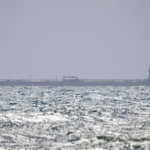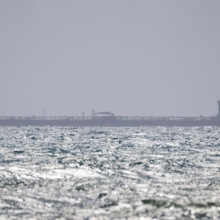Line 5 closure order threatens U.S.-Canada relations, feds warn. Critics respond

RoydadNaft –President Joe Biden’s administration, for the first time, waded this week into the years-long battle over Enbridge Inc.’s controversial operation of an oil pipeline that runs through Michigan, asking an appeals court to consider the international ramifications to the economy and energy markets if Line 5 is shut down.
The U.S. Department of Justice argued in a brief to the 7th Circuit Court of Appeals that a federal judge did not fully consider U.S.-Canadian treaty obligations governing oil pipelines when he ordered Enbridge last June to remove or shut down its pipeline on Native American lands in Wisconsin within three years.
The federal government acknowledged in a 70-page amicus brief filed in court Monday and made public Wednesday that Enbridge’s Line 5 had been trespassing on tribal lands for more than a decade and opined the fine levied on the Canadian pipeline giant for doing so was too low.
But the court filing marks the first time the U.S. government has inserted itself into legal disputes in Wisconsin and Michigan seeking the shutdown of Enbridge’s 70-year-old pipeline, which carries Canadian oil through the Upper and Lower peninsulas, crossing underwater at the Straits of Mackinac.
“The operation of that pipeline has implications for the trade and diplomatic relationship between the two countries, as well as economic and energy-supply implications,” the Biden administration said in its amicus brief.
“In the view of the United States, the district court failed to adequately assess all of the public interests in crafting its injunctive relief or to adequately weigh them in light of all the circumstances and equities.”
The Bad River Band of Lake Superior Chippewas said it was thankful the federal government agreed that Enbridge had trespassed on its tribal lands but was “disappointed” with other positions voiced in the filing.
“We are disappointed that the U.S. has not unequivocally called for an immediate end to Enbridge’s ongoing trespass, as justice and the law demand,” said Robert Blanchard, chairman for the Bad River Band. “Enbridge should be required to promptly leave our reservation, just like other companies that have trespassed on tribal land.”
Enbridge said in a statement it appreciated that both the U.S. and Canadian governments recognized Line 5 as “critical energy infrastructure” for both countries. About 540,000 barrels of light crude oil and natural gas liquids flow through Line 5 each day, supplying petroleum to refineries in Ontario, Michigan, Ohio and elsewhere.
“Such a shutdown is not in the public interest as it would negatively impact businesses, communities and millions of individuals who depend on Line 5 for energy in both the U.S. and Canada,” Enbridge spokesman Ryan Duffy said.
The National Wildlife Federation blasted the Department of Justice on Wednesday, arguing its position undermined the tribal rights of the Bad River Band and “promoted the corporate well-being of a fossil fuel company over the people and wildlife of the Great Lakes.” The group’s rebuke of the Biden administration’s stance was echoed by other state and national environmental and conservation organizations.
“The Department of Justice did not fully advocate for tribal sovereignty nor environmental protection, and we are deeply concerned by the potential ramifications of the administration’s brief,” NWF executive vice president Mustafa Santiago Ali said in a statement.
Michigan Attorney General Dana Nessel’s office, which is suing to shut down a portion of Line 5 in Michigan, noted it had voiced a similar position to the federal government on several points in an amicus brief filed in the Wisconsin case.
But the Department of Justice’s “11th-hour” request to reconsider the closure of Line 5 based on U.S.-Canada treaty implications seemed “too little, too late,” Nessel spokesman Danny Wimmer said.
He emphasized the DOJ’s filing had no binding legal effect on the court.
“… the federal government had every opportunity to weigh in and ask the trial court to consider its interests, and it decided not to do so at any point in the last 4.5 years,” Wimmer said in a statement.
Shutdown sought in Wisconsin, Michigan
The legal fight seeking to shut down Line 5 in Wisconsin has largely run parallel to similar litigation in Michigan, where Nessel has argued since 2019 that Line 5’s segment through the Straits of Mackinac — the waterway connecting Lakes Michigan and Huron — should be closed because it is a public nuisance and violates public trust and environmental laws.
In 2020, Gov. Gretchen Whitmer revoked Enbridge’s 1953 easement through the straits but later dropped litigation seeking a court order upholding the revocation when she was blocked from pursuing the claims in state court.
Nessel’s 2019 case is awaiting a decision in the 6th Circuit U.S. Court of Appeals on whether the federal court is the proper venue for the complaint.
Michigan Attorney General Dana Nessel’s office was sharply critical of the Biden administration “11th hour” decision to weigh in on the potential impact of shutting … Show more
David Guralnick, The Detroit News
Wisconsin’s litigation has differed from Michigan’s because it was brought not by the state itself but by the Bad River Band of the Lake Superior Tribe of Chippewa Indians of the Bad River Reservation. The litigation invoked rights secured through federal treaties with the band and argued Enbridge was trespassing on the reservation because it failed to secure new easements for Line 5 when its prior ones expired in 2013.
A federal district judge agreed with the Bad River Band in 2022 and, in June 2023, ordered Enbridge to relocate its pipeline outside the reservation within three years.
Both the litigation in Michigan and Wisconsin has been complicated by Canada’s invocation of a 1977 Transit Pipeline Treaty, which prevents either the United States or Canada from interfering with the operation of a transnational pipeline.
The United States entered treaty negotiations with Canada but, as of Monday, had not yet taken a formal position on the legal fights festering in Wisconsin and Michigan.
Feds weigh in on years-old dispute
On Monday, the federal government said it was “undisputed” that Enbridge had not obtained new rights-of-way from the Bad River Band and was “consciously trespassing” on tribal land.
The federal government also argued the fines assessed on Enbridge should be higher. A $5 million penalty for 10 years of trespassing is insignificant, considering Enbridge made a net profit of more than $1 billion over that time period, the filing said.
Usually such a finding of trespass on a reservation would be cause for “immediate ejectment,” the federal government said. But “in an extraordinary case such as this,” where a separate pipeline treaty and diplomatic relations are threatened, a deferred closure is possible in the “name of public interest,” the U.S. government said.
The government also said the judge was incorrect in determining that the Bad River Band’s common law nuisance claim was enough to supersede the authority and the safety standards of the federal Pipeline Safety Act. The Pipeline Safety Act displaces any common law authority, the filing said.
Suncor Energy Sarnia Refinery in Sarnia, Ont. Canada.
The Suncor Energy refinery in Sarnia, Ontario, is among the Canadian refineries that benefit from getting oil and natural gas liquids shipped through the Line … Show more
Troy Shantz, Special to Detroit News
“The comprehensive nature of the statute displaces the courts’ authority to address the same risks by injunction through common law public nuisance claims,” the Biden administration said in its filing.
“… Congress did not intend for courts to exercise federal common law authority to develop and apply their own standards for evaluating the safety of pipelines, which could lead to inconsistent outcomes.”
Monday’s filing argued the case should be sent back to district court for the judge to more fully consider the impact of a shutdown on U.S.-Canada relations, increase the fines assessed on Enbridge and reverse the decision on the nuisance claim.
Enbridge likely will be delayed by permitting challenges on the relocated portion, making the three-year timeline for relocation nearly impossible and a closure of the line almost inevitable.
In amicus briefs, the government of Canada said the judge’s three-year shutdown order was “inconsistent with the requirements of the Transit Pipeline Treaty” and would have a “devastating impact” on Canada’s economy.
The justice department said such a finding by Canada could force treaty negotiations to go into arbitration, where a panel could decide the court’s order conflicts with the U.S.’s international obligations.
“If Line 5 were shut down before a replacement pipeline is put into operation — and that shutdown were to lead to the sort of economic harm Canada describes — it is possible that the United States could be subject to arbitration in which it could have exposure for significant damages if the arbitration panel found the United States liable for breaching its treaty obligations,” the U.S. government said.













